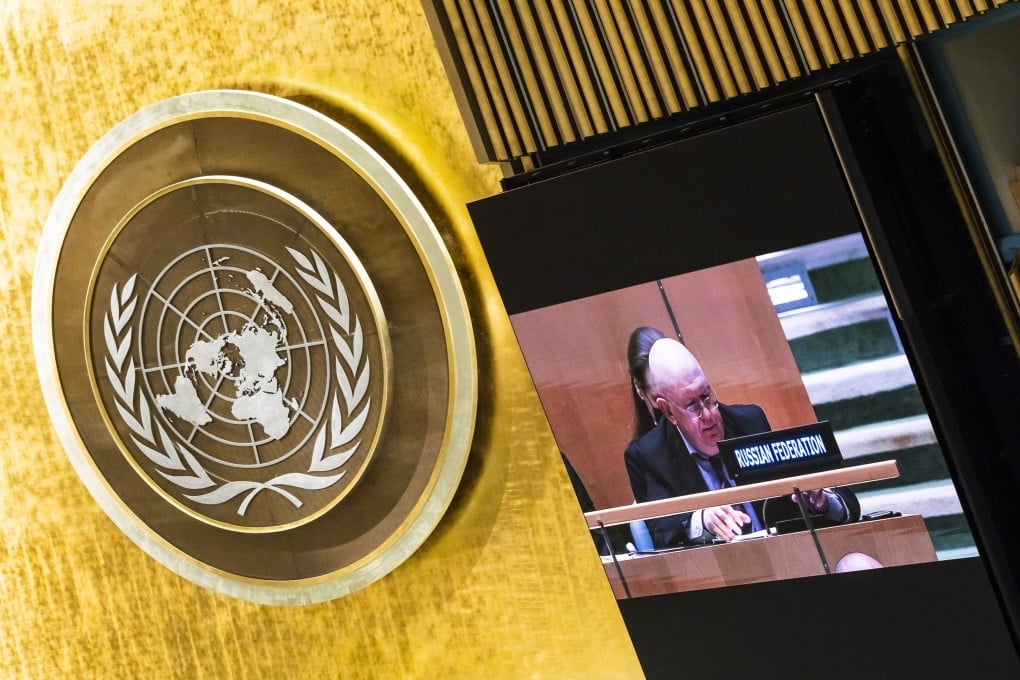Ukraine war: China does not support UN vote blaming Russia for humanitarian crisis
- The resolution, which calls for the protection of civilians and their homes, schools and hospitals, passes overwhelmingly but without Beijing’s support
- Only Russia, Belarus, Syria, North Korea and Eritrea opposed the measure; China was one of 38 countries abstaining

China abstained on Thursday as the UN General Assembly voted overwhelmingly in favour of a resolution that blamed Russia for the humanitarian crisis in Ukraine and called for an immediate ceasefire. It also chose not to vote yes or no on a similar resolution earlier this month.
The measure – calling for the protection of millions of civilians along with their homes, schools and hospitals – was met with loud applause at its passage. It received 140 favourable votes, with only Russia, Belarus, Syria, North Korea and Eritrea opposing it and 38 nations abstaining.
“A strong majority of UN member states made clear that Russia – Russia – bears sole responsibility for the grave humanitarian crisis and violence in Ukraine,” said US ambassador to the UN Linda Thomas-Greenfield, calling the vote “an astounding success”.
Russian President Vladimir Putin will not see victory in Ukraine, she added. “And we heard today that he will not see it here in New York either.”
In something of a battle of competing measures, another General Assembly resolution sponsored by South Africa and co-sponsored by China was dropped after the first resolution passed.
